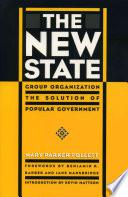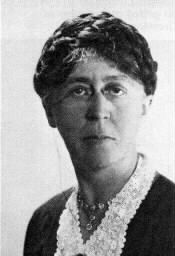Source: Dynamic administration, 1942, p. xxviii
Works

The New State
Mary Parker FollettFamous Mary Parker Follett Quotes
Source: Dynamic administration, 1942, p. xxiv
Source: The New State, 1918, p. 117. Chapter XIV: "The Group Principle at Work"
Follett (1942, 110), cited in: Seth Kreisberg (1992). Transforming Power: Domination, Empowerment, and Education. p. 71
Attributed from postum publications
“There is no such thing as vicarious experience.”
Attributed to Follett in: Michele Barrett (1991). The Politics of Truth: From Marx to Foucault. p. 189
Attributed from postum publications
Source: The New State, 1918, p. 33
Mary Parker Follett Quotes about business
Source: Dynamic administration, 1942, p. xix-xx
Source: Dynamic administration, 1942, p. 1. Lead paragraph
Attributed to Mary Parker Follett in: Business: The Ultimate Resource, 2001. p. 904.
Attributed from postum publications
Source: Dynamic administration, 1942, p. xxi-xxii
Source: Dynamic administration, 1942, p. xx
Source: Dynamic administration, 1942, p. xx-xxi
Mary Parker Follett Quotes
“The essence of society is difference, related difference.”
Source: The New State, 1918, p. 33
Context: We see now that the process of the many becoming one is not a metaphysical or mystical idea; psychological analysis shows us how we can at the same moment be the self and the other, it shows how we can be forever apart and forever united. It is by the group process that the transfiguration of the external into the spiritual takes place, that is, that what seems a series becomes a whole. The essence of society is difference, related difference. "Give me your difference" is the cry of society to-day to every man.
Source: The New State, 1918, p. 161
Follett in: Pauline Graham (2003), Mary Parker Follett--prophet of Management, p. 115
Attributed from postum publications
“Man can have no rights apart from society or independent of society or against society.”
Source: The New State, 1918, p. 136
Source: The New State, 1918, p. 26
Attributed to Follett in: Richard C. Wallace, David E. Engel, Dr. James E. Mooney (1997). The learning school: a guide to vision-based leadership. p. ix
Attributed from postum publications
Source: The New State, 1918, p. 3
Source: The New State, 1918, p. 23
Source: The New State, 1918, p. 62
Source: Dynamic administration, 1942, p. 2
Source: The New State, 1918, p. 21
Source: The New State, 1918, p. 136
I have chosen certain subjects which seem to me to go to the heart of personnel relations in industry. I wish to consider in this paper the most fruitful way of dealing with conflict. At the outset I should like to ask you to agree for the moment to think of conflict as neither good nor bad; to consider it without ethical prejudgment; to think of it not as warfare, but as the appearance of difference, difference of opinions, of interests. For that is what conflict means — difference. We shall not consider merely the differences between employer and employee, but those between managers, between the directors at the Board meetings, or wherever difference appears.
Source: Dynamic administration, 1942, p. 1. Lead paragraph
